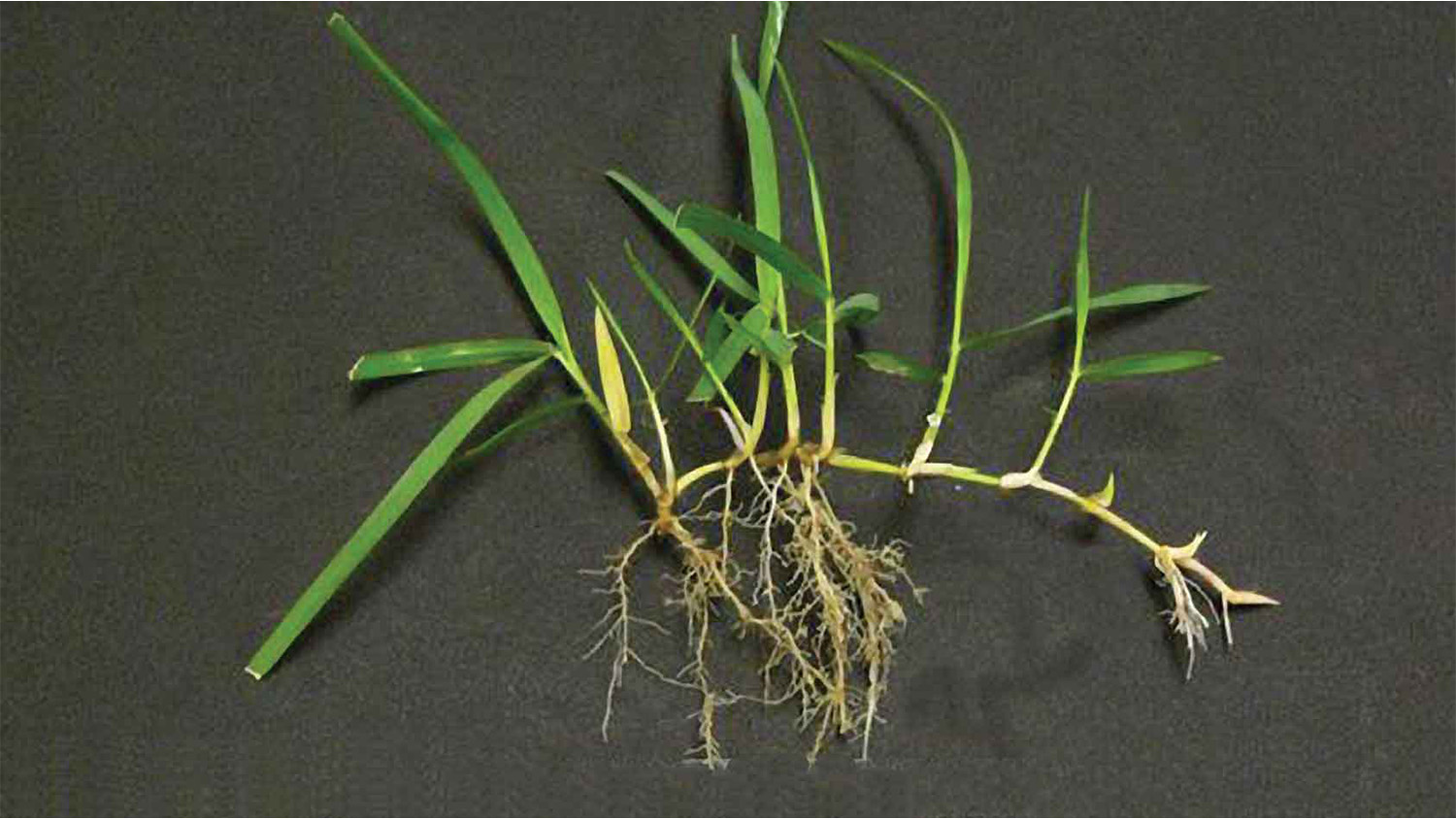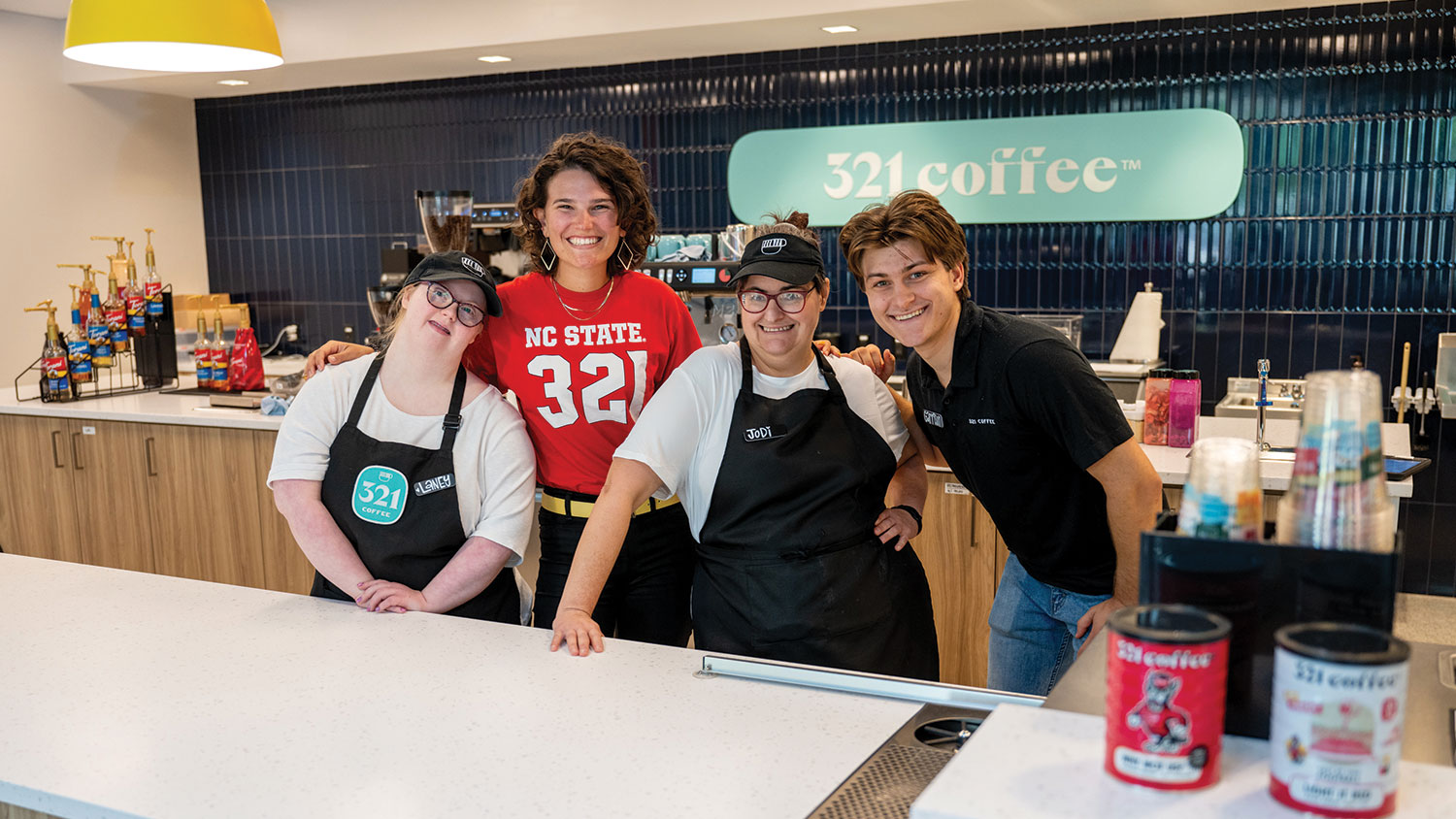Going Green
NC State develops a new type of grass that could help the environment and the university.

By Marti Maguire
After more than a decade of breeding and testing at sites across the state, NC State researchers have unveiled a versatile new type of grass that will require less water while generating more green for university coffers.
Called Lobo, Spanish for “wolf,” the cultivar, or breed, of Zoysiagrass released in November is the first of its kind developed by the Turfgrass Breeding and Genetics Program, established in 2009. Suitable for use in lawns, roadsides and golf courses, it has earned high marks in trials by the Professional Golf Association and the N.C. Department of Transportation. And that could signal its future profitability.
“Raising a cultivar is like the Holy Grail,” says Susana Milla-Lewis, ’98 MA , ’03 PHD, who heads the turfgrass program. “It’s very fulfilling to see how much excitement it is generating.”
Zoysiagrasses have a fine texture that is soft on the feet. They grow primarily in warm climates, and require less water than cold-climate grass varieties. Lobo was bred to grow in colder temperatures than most Zoysiagrasses, says Milla-Lewis, and takes less time to establish while maintaining a vibrant green color. She hopes to see Lobo expand the reach of low-maintenance Zoysiagrasses into areas where they could not be grown previously. “One of the benefits would be really pushing the area of adaptation northward, allowing them to use less water in a colder climate,” says Milla-Lewis.
A native of Peru, Milla-Lewis says North Carolina is well situated for breeding grasses. With research sites in the mountains, piedmont and sandhills, her team could subject their plants to drought, disease and cold, creating the new breed from the hardiest survivors. The work was supported by a group of local growers and supplier Sod Solutions, who will have exclusive rights to grow and sell Lobo Zoysia. NC State will receive a percentage of sales, which Milla-Lewis hopes will help expand her program — leading their work, perhaps, to greener pastures.
- Categories:


